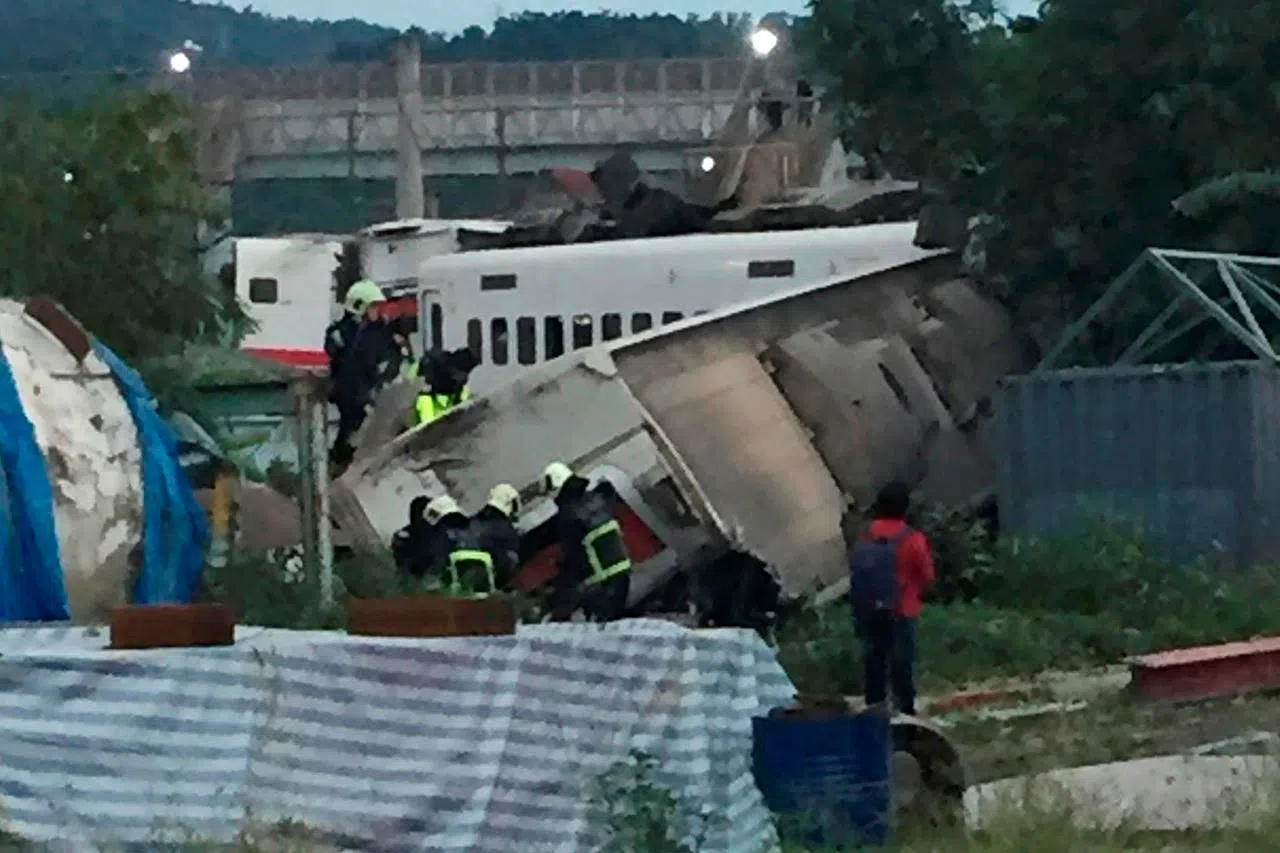
Taiwan president calls for clear probe of fatal train crash
DONGSHAN TOWNSHIP, Taiwan — Taiwan’s president pressed for a quick, transparent probe into the cause of the island’s worst train crash in nearly three decades as the search of the derailed cars ended and crash investigators examined the wreckage Monday.
The eight-car Puyuma express ran off the tracks as it went around a bend where the maximum speed is 75 kilometres per hour (47 mph). Video footage obtained by local media showed the train striking and toppling a beam and ripping down metal structures from above the tracks as it crashed.
Eighteen people were killed and 187 injured in the crash that left most of the cars damaged and five overturned in a zig-zag pattern to the left of the tracks. Rescuers searched through the night for more victims before work crews moved the derailed cars upright to assist the investigation.
“Everyone cares a lot about the cause of the accident,” Taiwan President Tsai Ing-wen said in a statement from her office. “Therefore we request that the investigating departments must as soon as possible make clear the timing and situation of the whole accident from start to finish and be able to give citizens a report.”


